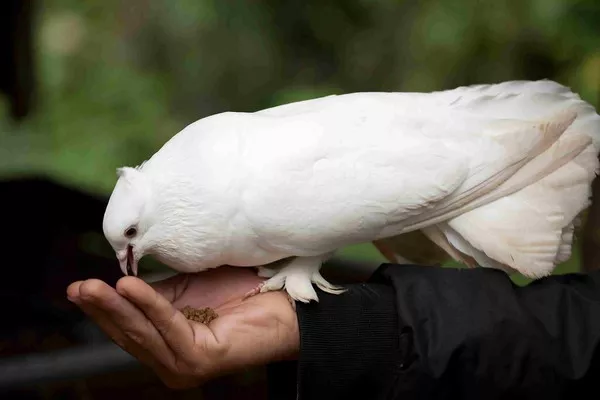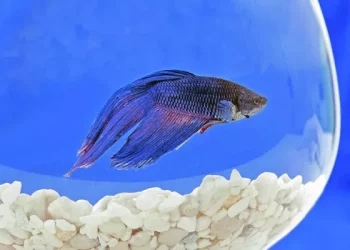Conures are a type of parrot native to the Americas, and they are popular pets due to their playful, affectionate nature and colorful plumage. As with any pet, it is crucial to ensure that they are living in an environment that is safe and conducive to their health and well-being. One of the most overlooked aspects of creating a safe living space for conures is being aware of potential toxic smells. These odors are often not immediately recognized as dangerous, yet they can have severe consequences for the health of these delicate creatures.
In this article, we will explore what smells are toxic to conures, how these smells affect them, and how you can minimize the risks of exposing them to harmful substances.
The Sensitivity of Conures
Conures, like other birds, have a highly sensitive respiratory system. Birds have air sacs that are integral to their breathing, and they require clean, unpolluted air to maintain their health. Unlike mammals, birds’ respiratory systems do not have the same level of protection from inhaled toxins. As a result, birds like conures are more susceptible to airborne toxins that would not necessarily harm humans or other pets. This heightened sensitivity makes it crucial for bird owners to be vigilant about the smells and chemicals in their environment.
A Bird’s Sense of Smell
Conures, like many birds, have a strong sense of smell. While not as acute as some species, they rely on their olfactory senses to detect food, locate mates, and even gauge their environment. Some smells are naturally pleasant and comforting to them, but many others can be dangerous. Birds are often drawn to new or unfamiliar smells, but they cannot easily differentiate between safe and toxic substances.
The Role of Olfactory Systems in Birds
Birds’ olfactory systems are much more developed than those of mammals. In fact, they have specialized structures in their noses that allow them to pick up a wide range of scents. This is why it’s crucial to monitor the air quality around your conure. Since their respiratory system is so finely tuned, even low levels of harmful fumes can have serious repercussions.
Why Are Certain Smells Toxic?
The reason some smells are toxic to conures is largely due to the chemicals present in certain substances. Conures are highly sensitive to airborne toxins such as formaldehyde, certain essential oils, and smoke from burning substances. Birds often inhale these harmful chemicals, which can cause a range of health issues. These issues can vary from minor irritation to life-threatening conditions such as respiratory failure.
Key Smells That Are Toxic to Conures
1. Aerosols and Air Fresheners
Aerosols, air fresheners, and sprays are common household items that can have pleasant smells, but they are often toxic to conures. These products typically contain chemicals like phthalates, which are harmful to birds. The chemicals can irritate their respiratory system and cause symptoms such as coughing, wheezing, or even more severe issues like lung inflammation.
How they affect conures: Aerosol sprays, air fresheners, and cleaning sprays are full of volatile organic compounds (VOCs). These compounds can linger in the air for a long time, putting your conure at risk of prolonged exposure. When inhaled, these chemicals can irritate the delicate tissues in a conure’s airways and lungs, causing difficulty breathing, lethargy, and even organ failure in extreme cases.
How to avoid exposure: It’s essential to avoid using aerosols or air fresheners in any room where your conure spends time. If you do need to use air fresheners, opt for non-toxic, bird-safe alternatives such as natural essential oil diffusers that are safe for birds. Additionally, always ventilate the area properly to ensure that any residual fumes dissipate quickly.
2. Nonstick Cookware Fumes
One of the most common and most dangerous toxic smells that can affect birds is the fumes emitted by nonstick cookware, especially if the pans are overheated. Many nonstick pans are coated with polytetrafluoroethylene (PTFE), commonly known as Teflon. When these pans are heated to temperatures above 500°F (260°C), they can release toxic fumes that are fatal to birds.
How they affect conures: The fumes from overheated nonstick cookware can cause acute poisoning in birds. Symptoms of PTFE toxicity include labored breathing, open-mouthed breathing, lethargy, and even sudden death. Birds are particularly vulnerable to these fumes because they have an efficient but sensitive respiratory system that absorbs these toxins much faster than that of mammals.
How to avoid exposure: Always use nonstick cookware at low to medium heat and never leave nonstick pans unattended. Ideally, opt for safer alternatives such as cast iron, stainless steel, or ceramic cookware. If you are cooking in an area where your conure resides, make sure to ventilate the space well, open windows, and use fans to reduce the concentration of any potentially harmful fumes in the air.
3. Cigarette and Cigar Smoke
Cigarette and cigar smoke contain hundreds of toxic chemicals, many of which are harmful to conures. The smoke from tobacco products can linger in the air, putting your conure at risk of long-term exposure to dangerous substances like tar, nicotine, and carbon monoxide.
How they affect conures: Exposure to cigarette or cigar smoke can lead to respiratory problems in conures, including coughing, sneezing, and shortness of breath. Long-term exposure can lead to chronic respiratory disease, heart failure, and even death. Birds exposed to smoke often develop symptoms of toxicity, including lethargy, feather plucking, and reduced appetite.
How to avoid exposure: The best way to protect your conure from cigarette or cigar smoke is to smoke outside or in a designated smoking area far away from your bird. Even if you think the air is clear inside, harmful particles can linger in fabrics and surfaces. It is also important to keep your bird in a well-ventilated area to minimize the risk of smoke exposure.
4. Essential Oils
Essential oils are often used in diffusers, humidifiers, and cleaning products for their pleasant fragrances and supposed health benefits. However, many essential oils are toxic to birds, especially when inhaled in concentrated amounts. Some oils, such as eucalyptus, tea tree, peppermint, and citrus oils, are known to cause harm to birds.
How they affect conures: Essential oils can cause serious respiratory problems in conures, including wheezing, nasal discharge, and difficulty breathing. Some oils, when inhaled in high concentrations, can even lead to liver failure or death. Birds have a much more sensitive sense of smell than humans, so even small amounts of these oils can have a significant impact.
How to avoid exposure: Avoid using essential oils around your conure, especially in a concentrated form. If you choose to use essential oils for personal purposes, ensure the room is well-ventilated, and your bird is not in close proximity to the diffusing oils. Use bird-safe diffusers or choose alternatives that are safe for pets.
5. Cleaning Products
Many common cleaning products, such as bleach, ammonia, and certain disinfectants, are highly toxic to birds. These products often release fumes that can irritate or damage the respiratory system of a conure. They also can leave residue that may be ingested or inhaled by the bird.
How they affect conures: Inhalation of cleaning product fumes can cause respiratory distress, irritation of the eyes and throat, and damage to the liver and kidneys. In extreme cases, exposure to harsh cleaning chemicals can be fatal. Birds that come into contact with surfaces cleaned with toxic products may also ingest harmful chemicals by licking their feet or feathers.
How to avoid exposure: Always use bird-safe, non-toxic cleaning products. If you must use harsher chemicals, ensure that the area is thoroughly ventilated and that your conure is removed from the room until the fumes have dissipated. Additionally, make sure all surfaces are completely dry before allowing your bird to come into contact with them.
6. Mold and Mildew
Mold and mildew growth can produce a musty odor that might not seem dangerous to humans, but it can be hazardous to birds. Mold spores can be inhaled, causing serious respiratory problems in conures and other birds.
How they affect conures: Mold can lead to fungal infections and respiratory diseases in birds, which can be fatal if not treated. The spores can irritate the lungs and air sacs, leading to symptoms such as wheezing, coughing, and difficulty breathing. Chronic exposure can result in irreversible lung damage.
How to avoid exposure: Regularly check your home for signs of mold or mildew, especially in areas that are prone to moisture such as bathrooms, kitchens, and basements. If you find mold, clean it immediately using safe cleaning methods, and ensure that the area is well-ventilated.
7. Perfumes and Fragrances
Perfumes, colognes, and other heavily scented personal care products can also be harmful to conures. These products often contain alcohol, synthetic fragrances, and other chemicals that can cause irritation to a bird’s respiratory system.
How they affect conures: Strong fragrances can irritate a conure’s sensitive respiratory system, causing symptoms such as sneezing, coughing, and eye discharge. In more severe cases, exposure can lead to breathing problems and overall discomfort.
How to avoid exposure: When using perfumes or scented personal care products, ensure that your conure is in a different room or area. Avoid applying products in areas where your bird spends time, and opt for fragrance-free or naturally scented alternatives when possible.
Conclusion
Conures are beautiful, intelligent, and loving pets that require special attention and care to thrive. Because of their highly sensitive respiratory systems, conures are particularly vulnerable to toxic smells and airborne chemicals that might not pose a significant risk to humans or other pets. To keep your conure healthy, it is essential to be aware of common household smells and substances that can be toxic, including aerosol sprays, nonstick cookware fumes, cigarette smoke, essential oils, cleaning products, mold, and fragrances.
By taking simple precautions such as avoiding these harmful smells, ensuring good ventilation, and using bird-safe products, you can create a safe and comfortable environment for your conure. Always remember, your conure’s health is closely tied to the quality of the air they breathe, so it’s important to maintain a toxin-free environment to ensure they live long, happy, and healthy lives.
Related Topics:






















